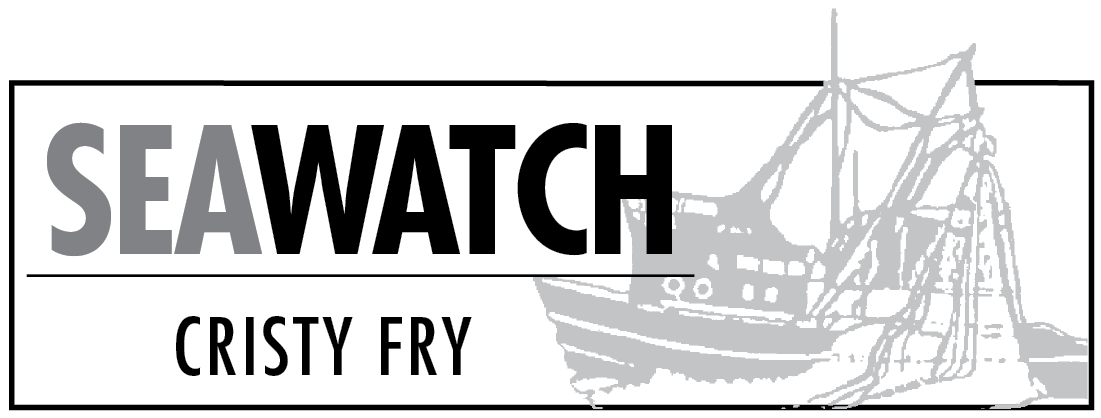An effort is underway to stop Bristol Bay salmon fishermen from paying a 1 percent tax to fund the Bristol Bay Regional Seafood Development Association, in part because of the president’s ties to Pebble Mine.
Fisherman Erick Sabo is circulating a petition to stop the tax from being collected. It requires signatures from 10 percent of Bristol Bay permit holders, which then get submitted to the state, which would then instruct BBRSDA to hold a vote.
Then, if one-third of permit holders vote, and more than half of those vote yes to discontinue the tax, it will be eliminated.
“It’s basically a vote of confidence,” Sabo said.
One reason for a lack of confidence in the association is the board’s decision to elect Abe Williams as its president.
Williams has close ties to Pebble Mine, and is president and executive director of Nuna Resources, which was set up in 2011 with funding it sought from the Pebble Limited Partnership.
Nuna is a nonprofit that supports sustainable resource development in rural Alaska and which supports Pebble Mine.
When Williams was elected president of BBRSDA, Sabo said that a subscription mining newsletter widely read in Washington, D.C., reported that the association no longer opposed the mine.
That was “the straw that tipped the camel over,” he said.
“I’ve never really enjoyed paying a one percent tax, but I’ve believed that a lot of the money and a lot of the effort provided one voice against Pebble.”
Sabo said he voted for Williams as a board member, but Williams never disclosed in his candidate statement his connections with Pebble.
Once elected, he disclosed his Nuna position and was prevented from voting on some items due to conflict of interest.
“I thought that was disingenuous that he didn’t tell that on his candidate statement,” Sabo said.
He likened it to putting a pro-lifer in charge of Planned Parenthood.
Historically, BBRSDA has actively opposed Pebble Mine, including spending at least a fifth of its budget on sustainability and anti-mining efforts over the past several years, and a policy statement adopted in 2008 that opposed large-scale mining.
Williams declined to comment about the controversy, but when asked if BBRSDA now supported the mine, he hesitatingly said “no.”
The association also sent out a notice to members after the mining newsletter and press reports said Williams’ position as president signaled a shift in direction, which stated that nothing could be further from the truth.
The leadership issue is not the only reason Sabo is trying to convince members to defund BBRSDA.
He said the association has budgeted $1 million toward marketing.
“We don’t know if the processors even want the marketing dollars, or whether the processors are partnering up.
“One of the biggest complaints that go against marketing is ‘what does the BBRSDA have to market?’ They don’t own any fish.”
He said that from 2008 to 2013 the BBRSDA gave processors a questionnaire asking how the association could best spend its dollars.
Only in 2011 did marketing even show up in the responses.
“In all those years, in all those responses, marketing was deemed the least important,” he said. “So why are we spending all this money on marketing that they don’t even want?”
He added that at Fish Expo in Seattle, Trident CEO Chuck Bundrant reportedly said he could sell all the sockeye fillets he could get, but could not find a market for canned salmon, which was causing the inventory problems in the market.
Sabo said the latest BBRSDA article called canned fish a product of the past, but then said they were putting a million dollars into marketing and putting new labels on the cans.
“So we’re going to create a market for cans and then abandon the dinosaur?” he asked.
He added that the Alaska Seafood Marketing Institute already has a robust marketing campaign, promoting Alaska seafood better than any other organization; there is no need to duplicate it.
“They do it with expertise, professional staffing and with a relatively large budget, with significant participation by the processors.”
Another issue is that setnetters do not pay the 1-percent tax, but benefit from the same marketing campaigns that the drifters pay for, creating division among fishermen.
Sabo also said that using the tax to subsidize putting refrigeration on other people’s boats was not fair, that if people wanted the higher price for chilled fish, they or the processors can pay for it.
He also is unhappy with about one-third of the budget going to overhead costs.
If the tax does get voted down, the BBRSDA does not necessarily go away. There are other ways to get funding, either through state or federal grants, or possibly through ASMI.
“With Abe Williams in charge, maybe Abe could ask Pebble to give them some money,” Sabo said.
He was confident he would be able to get 10 percent of the 1,650 drift permit holders to sign on to the petition by March.
That is only part of the battle. Getting members to actually vote is another huge part.
Only about one-third of the members vote in the elections, including the one that created the BBRSDA, the threshold necessary for the vote to be valid. Getting more than half of those to vote to stop collecting the tax will undoubtedly take even more effort.
However, Sabo is up to the task.
“Pebble Mine has brought more attention to Bristol Bay, the importance of wild fish and wild habitat that supports our fishery than any marketing campaign will produce,” he wrote on Facebook. “Without that fight, I want my one percent in my pocket so I can contribute to those organizations that will fight Pebble as well as organizations that are able and willing to fight for a fair price, lobby to make necessary long term changes that are good for the fishery.”
Cristy Fry can be reached at realist468@gmail.com.


